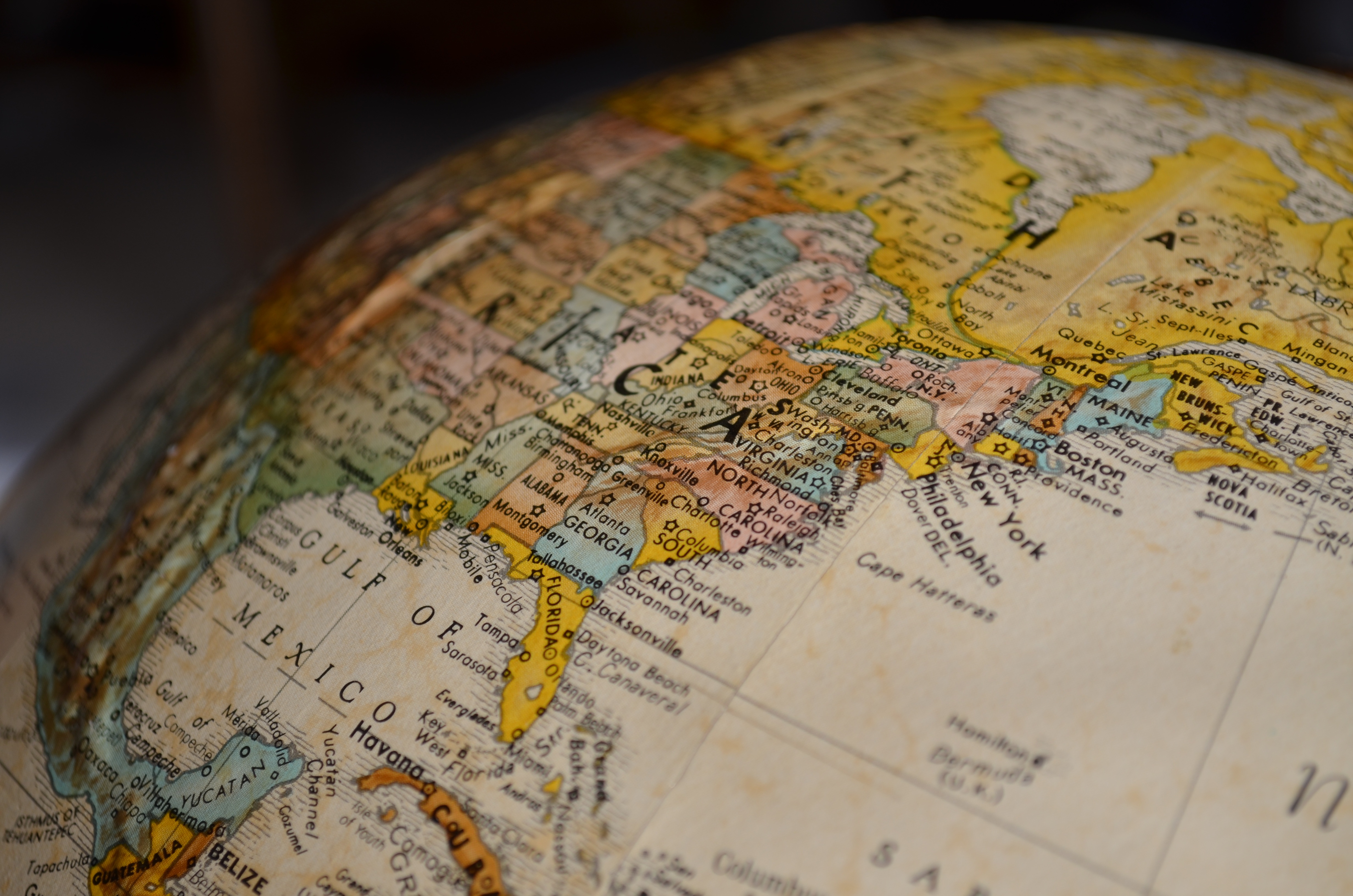Successful Failures: Economic Sanctions, Humanitarianism, and the Undoing of Post-Colonial Sovereignty
Ntina Tzouvala
The psychotherapist Adam Phillips has suggested that repeated failure in doing something might actually be a success in doing something else—something that we might not want to acknowledge or articulate. This is a useful way of thinking not only about life but also about law. For example, as Sundhya Pahuja has documented, while the embrace of the language of “development” by international law may have repeatedly failed to deliver prosperity for all or to close the gap between “developed” and “developing” states, it has successfully augmented the power and authority of international financial institutions and other actors controlled by Global North. In this short post, I want to draw attention to another successful failure in international law: the humanitarian critique of economic sanctions.
Concerns about the impact of sanctions on civilians have generally failed to bring about concrete legal limits on the use of sanctions as a tool of foreign policy. However, as the ongoing saga concerning the Afghan central bank’s assets indicates, they have succeeded in something much more fundamental: they have legitimized the United States’ use of sanctions as a tool of undoing and re-assembling the sovereignty of a postcolonial state. In particular, progressive legal scholars need to pay attention to how the United States has anchored its appropriation of the authority and functions of another, nominally sovereign state, in the name of providing humanitarian relief to Afghans.
When U.S. troops left Afghanistan in 2021, the Taliban rapidly regained control of the country and assumed governmental functions. In response, the U.S. Treasury Department froze 7 billion USD in Da Afghanistan Bank (DAB) assets to prevent the Taliban, which is sanctioned by the United States, from accessing them. The international legality of this move is doubtful. Even setting aside questions about the legality of economic sanctions as such, the decision likely runs afoul of the rules of sovereign state immunity. Rules of sovereign state immunity constitute procedural barriers against judgment, enforcement, and execution by the (judicial) authority of one state against another. Grounded on the idea of sovereign equality, sovereign state immunity uncontroversially applies to assets of central banks held overseas, with the possible exception of sovereign wealth funds.
Nevertheless, U.S. lawyers have argued that the decision to freeze DAB assets does not violate immunity rules. First, they raise the linguistically plausible but somewhat counterintuitive argument that sovereign immunity protects sovereigns only from the jurisdiction of foreign courts and not from executive action. Second, they posit that because the United States does not recognize the Taliban as Afghanistan’s government, the question of who has a legal right to access these assets remains uncertain as a matter of international law. In this respect, the U.S. stance is not entirely unprecedented. In the aftermath of a heavily contested election process in Venezuela, the United States (and the UK) decided to give the right-wing Venezuelan politician, Juan Guaidó, control over the state’s property and assets in the United States, rather than give such access to the Maduro the government, which actually controlled of the state apparatus.
The practical consequences of denying the de facto government of a state access to its central bank assets can hardly be over-stated. U.S. sanctions further aggravated Afghanistan’s economic and humanitarian crisis, with large parts of its population unable to access essential goods and services. As a result, the Biden administration faced calls to release some or all these assets in order to prevent an impeding humanitarian disaster. Such disasters are, of course, a long-standing concern when it comes to economic sanctions, one which gained legal prominence in the early 1990s. With the collapse of the Soviet Union, Cuba’s main trading partner, the decades-old U.S. embargo suddenly resulted in acute shortages on the island. In addition, the UN Security Council’s comprehensive sanctions against Iraq in the aftermath of its aggression against Kuwait caused immense suffering among Iraqis, including children.
Former secretary of state Madeleine Albright gained international notoriety when she argued that this was a price worth paying, but her callous views were largely out of step with the rise of a distinct humanitarian sensibility in international law and politics. Over the course of the 1990s and early 2000s many international lawyers argued that both unilateral and multilateral sanctions had to comply with international human rights law, especially socioeconomic rights, and with the principle of proportionality. These arguments were not doctrinally straightforward and, perhaps unsurprisingly, they did not gain acceptance among the main sanctioning powers. However, the rise of humanitarian critiques of sanctions put pressure on states and international institutions to adopt targeted sanctions that at least in theory did not affect ordinary citizens and to provide for humanitarian exceptions.
This emphasis on the suffering caused by sanctions has not always been the prime legal criticism against such measures. Prior to the 1990s, few questioned the international legality of unilateral sanctions by invoking human rights law. Rather, legal debates about sanctions between 1945 and the early 1990s took place in the registers of state sovereignty, political independence, and prohibition of interference in other states’ domestic affairs. Third World advocacy focused not on human suffering but rather on the fact that powerful Western states were weaponizing their economic supremacy—itself the outcome of imperialism and colonialism—in order to perpetuate the subordination of the Global South, and especially of social democratic, socialist, and communist governments. Indeed, this was part of the argument that Nicaragua made in front of the International Court of Justice: each individual act of the United States (say, withdrawal of voluntary aid or reduction of sugar import quotas) might have been lawful under international law, but taken together they constituted an unlawful interference with Nicaraguans’ right to choose their own government and that government’s right to implement socialist policies.
Even though the decision in the case signaled an overall victory for Nicaragua by finding that the U.S. campaign against the country’s government had violated fundamental rules of international law (such as the prohibition of intervention), the central American country’s arguments against sanctions were unsuccessful. This failure was not an isolated incident. Rather, it tracked the overall failure of the Global South’s efforts to outlaw unilateral sanctions and, more broadly, to use newly-gained national sovereignty to remake the international legal and economic order. As left-wing governments in post-colonial states were removed by foreign-sponsored coups, corrupted, or turned authoritarian, the allure of invoking post-colonial sovereignty and independence as legal limitations to sanctions diminished. In its place, an appeal to humanitarianism and human rights offered a way of critiquing the worst effects of sanctions with no reference to the state, often because the targeted states were (rightly) seen as indefensible from a left-internationalist perspective.
Few instances exemplify this unease as clearly as the Taliban regaining control over Afghanistan. It is, then, not a surprise that criticisms of sanctions have focused almost exclusively on their adverse effects on ordinary Afghans, abstaining from any principled defense of the state’s sovereignty or the Taliban’s political authority. Interestingly, the humanitarian concerns of these critics were cited to justify the Biden administration’s treatment of the DAB’s assets. While roughly half of the frozen assets ($3.5 billion) are currently subject to claims by families of 9/11 victims in U.S. courts, the remaining assets were transferred to the Fund For the Afghan People account with the Bank of International Settlements (BIS). The Fund, which was established in September 2022 as a non-profit organization subject to Swiss law and headquartered in Geneva, is to “receive, protect, preserve, and disburse” frozen assets from the United States and elsewhere with a view of ensuring “foreign exchange rate and price stabilisation objectives in Afghanistan.”
The Fund is presently governed by a board of four members, including the U.S. ambassador in Switzerland, Scott Miller, who serves as the board’s chair. Given the requirement for unanimity in decision-making (Art. 16(1) of the statute) and the statutory requirement that the United States appoints one of the board’s members (Art. 12(3) of the statute), the United States has an effective veto in how the DAB’s assets are used. In essence, the Fund aspires to operate as a central bank in exile for Afghanistan, disposing of the state’s funds in the performance of typical central bank functions while bypassing the state’s de facto government. The Fund’s statute gives its board broad discretion in how it can use the funds, including the payment of the state’s debt or the release of funds for humanitarian purposes, such as maintaining the country’s supply of electric power. This broad mandate, of course, overlaps and potentially collides with the authority of the Afghan state, and internal disagreements have already emerged over which payments should be left to the official government and which should be taken on by the Fund.
These disagreements are only possible due to the ambitious character of the Fund in the first place. By mobilizing the hegemonic position of its national currency, the United States has managed not only to wield an effective “economic weapon” against the Taliban, but to disaggregate the very functions of the Afghan state by elevating a U.S.-controlled Swiss non-profit into the de facto central bank of the country. In my view, there is a qualitative difference between this initiative and the earlier decision of the United States to allow Juan Guaidó to resume control over Venezuela’s assets and property. In the latter case, Venezuela was still conceptualized as fully sovereign state with a unified government that was entitled to perform all conventional governmental functions. While the parties disagreed about who was entitled to perform these functions under international law, this familiar problem does not challenge in principle the very notion of postcolonial statehood.
In contrast, the United States is using its monetary power over Afghanistan to give to itself and some of its trusted allies government-like powers vis-a-vis another state without claiming that the Fund constitutes the government of the state in general. Humanitarian concerns have operated as an excuse for attempting to internationalize control of the monetary policy of a sovereign state and to disconnect this policy from other aspects of day-to-day governance, which are still performed by the Taliban. It is hard to see how such an arrangement is compatible with even the narrowest readings of the requirement that a political community exhibits a certain degree of independence and coherence in order to be a state under international law.
Of course, as the example of Venezuela shows, controlling central bank assets is not a guarantee for controlling the state as a whole. In this respect, I am not arguing that the establishment of the Fund will lead to the collapse of the Taliban government or that it will cause the persistent disaggregation of Afghanistan’s state apparatus on an empirical level—at least not to a greater extent that this is already the case. However, I do posit that the Fund might be another instance of successful failure in and through law in which sanctions are used to challenge not simply this or that government in the Global South, but rather the concept of postcolonial sovereignty as a whole. As U.S. legal scholars, then, debate the democratic potential of money creation and central banking, it is worth keeping in mind that the unique position of the U.S. dollar as an international currency enables practices that undermine both the foundations of the international legal order and the preconditions of meaningful self-government in large parts of the world.
Ntina Tzouvala is an Associate Professor at ANU College of Law.
This piece is part of a Symposium on Third World Approaches to International Law & Economic Sanctions.



1 Response
[…] is worth noting that the conditions that the U.S. has set for return of the assets potentially violate the principle of sovereign equality of states, which prohibits state actions that forcibly or […]